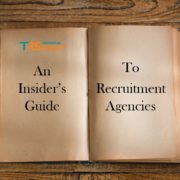The Candidates Guide to Fake Job Ads
‘Spike in Jobs Ads Show it’s a Candidates World’, ‘Job Ads up 5 Per Cent’, ‘Online Job Ads Continue to Grow Strongly’.
We’re constantly reminded through the media that job advertisements are increasing year by year, leading us to believe that jobs in New Zealand are of abundance. But how can we be sure that 100% of these ads are real? Well the reality is, we can’t. Fake job posts (aka. pooling ads) are everywhere and they always will be.
There are a fair few things to look out for before investing your time in applying for a job online. First though, you may be asking who in their right mind would bother wasting the time of hundreds of people?
These disingenuous people often gain a wealth of information by posting these fake ads and a lazy recruiter can spam your CV to 100’s of “clients” with a few clicks of a button.
Why are pooling adverts more dangerous than a bear in mating season?
Think there’s no harm in applying?
· The word can (and mostly will) get out that you’re on the market. Once a lazy recruiter has your CV it will find its way to countless inbox’s…perhaps your current employers’…awkward
· If your CV does get send out it will be poorly represented and will very unlikely to secure you an interview. A good consultant will always conduct a thorough interview to know what your strengths are and how best to market you to specific employers of interest.
· You’ve bound yourself to a crappy recruiter. This recruiter now has put your name to every client on their system. You may find this recruiter has “ownership” of your application over other agencies who are recruiting for the same position. Chances are you’ve now tainted your name by aligning yourself to a sloppy recruiter who was never asked to recruit in the first place.
· Prepare your inbox! Have you ever applied to job and then out of nowhere you get emails for completely irrelevant jobs? You now need to take 10 seconds out of your day to unsubscribe. Who’s got time for that these days?
Here are some reasons why some companies and hiring agents post pooling ads:
- To gauge the talent pool (hence the name ‘pooling ads)
- Find back up for the position advertised and keep resumes on file
- To disguise unfair hiring practices. Mindless ads to demonstrate to immigration there’s no suitable candidates locally.
- Drown out competition or push other ads to the back of the page index
- Simply to add you to their database or list
- To plagiarize your resume
- Getting your referee’s contact details to solicit business
Just because your resume disappeared into an apparent black hole, doesn’t mean that it was victim to a fake job advertisement. Although companies and agencies should always give you feedback, sometimes the sheer volume of applicants makes it impossible to reply to everyone.
What to look out for:
Today’s job boards are dominated by a handful of recruitment agencies, finding a “Real” job with a specialist agency or private lister is becoming increasingly hard. But with a little bit of inside information you can quickly spot a fake ad and narrow in on the good stuff.
Here are some signs of a possible pooling ad:
1- They appear in your inbox as “job offers” – but you didn’t apply for the job: Lets get the most obvious out of the way first. If a job offer which you haven’t applied for pops up in your inbox, you have reason to be sceptical. These emails will be void of any personal information to background and will be awfully generic. A good recruiter will always try to call first. Don’t reply or click any links!
2- They offer disproportionately high salaries: Pooling Ads are characterized by their high salaries and huge bonuses. It comes down to the cliche; If it seems too good to be true, then it probably is. Be realistic given your level of experience, qualifications or skills. If you apply and you’re skills are in demand expect a call… “but that role has been filled, however I have this other role that pays slightly less…”
2- They have vague job descriptions: does this sound familiar? This is a rare opportunity to join the established industry leader in their respected field. You can expect a great salary package, excellent opportunities for career progression and stability. When you can see little or no tangibility or specifics on location, project, company history or requirements…..most likely fake or at least a poorly written advert. The lister will usually have 10 other adverts which read 90% the same.
4- The job doesn’t have specific ownership: When the advert doesn’t have at least the name of the individual recruiting for the position it’s a strong signal the advertiser doesn’t want to talk to you. Often the only way to apply for the role is go the advertisers website where you are asked to agree to exclusivity and give them permission to “use your personal information for screening purposes”
5- They contain language errors: Many pooling ads contain spelling and grammar errors, and in general are poorly written. If you sense the post has been written in the single hold of a breath, think again.
The average job seeker views an online job post for just under a minute before eagerly hitting the apply button. Speaking from experience, I don’t blame you, job posts can be boring and repetitive with the potential to put a ANYONE to sleep.
But make sure you take more than a minute to read the post and be careful in selecting what you apply for. 2 minutes could save you a lot of time and trouble in the long run.
For any further job-seeker advice, contact conor@trs.co.nz














Leave a Reply
Want to join the discussion?Feel free to contribute!